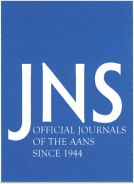The King-Devick (K-D) oculomotor test has recently been advocated for sideline diagnosis of concussion. Although, visual processing and performance are often impaired in concussion patients, the utility of K-D as a concussion diagnostic tool is not validated.
Purpose: To examine the diagnostic value of K-D, by comparing K-D with post-concussion symptom scale (PCSS) and ImPACT® composite scores. We hypothesized that K-D would be correlated with visual motor speed/memory (VMS, VIS) and reaction time (RT), because all require cognitive visual processing. We also expected parallel changes in K-D and PCSS across recovery.
Methods: Thirty-five concussed individuals (12-19 y; 18 female, 17 male) were evaluated with PCSS, ImPACT® composite and K-D scores over four clinical visits (V).
Results: K-D times improved with each visit (ΔV1-V2: 7.86±11.82; ΔV2-V3: 9.17±11.07; ΔV3-V4: 5.30±7.87 sec) and paralleled improvements in PCSS (ΔV1-V2: 8.97±20.27; ΔV2-V3: 8.69±14.70; ΔV3-V4: 6.31±7.71), RT (ΔV1-V2: 0.05±0.21; ΔV2-V3: 0.09±0.19; ΔV3-V4 0.03±0.07) and VMS (ΔV1-V2: -5.27±6.98; ΔV2-V3: -2.61±6.48; ΔV3-V4: -2.35±5.22). Longer K-D times were associated with slower RT (r=0.67; p<0.0001) and lower VMS (r=-0.70; p<0.0001), respectively.
Conclusion: Cognitive visual performance testing using K-D has utility in concussion evaluation. Validation would further establish K-D as an effective ancillary tool in longitudinal concussion management and research.
Summary Points:
- 35 concussed athletes ages 12-24, underwent post-concussion symptom scale, ImPACT, and K-D testing over 4 clinical visits, 2.5-4 weeks between each visit.
- K-D Test performance improved with recovery and correlated with improvements in symptoms, reaction time, visual motor speed, verbal memory, and visual memory.
- K-D Test has utility in concussion evaluation and longitudinal management.

